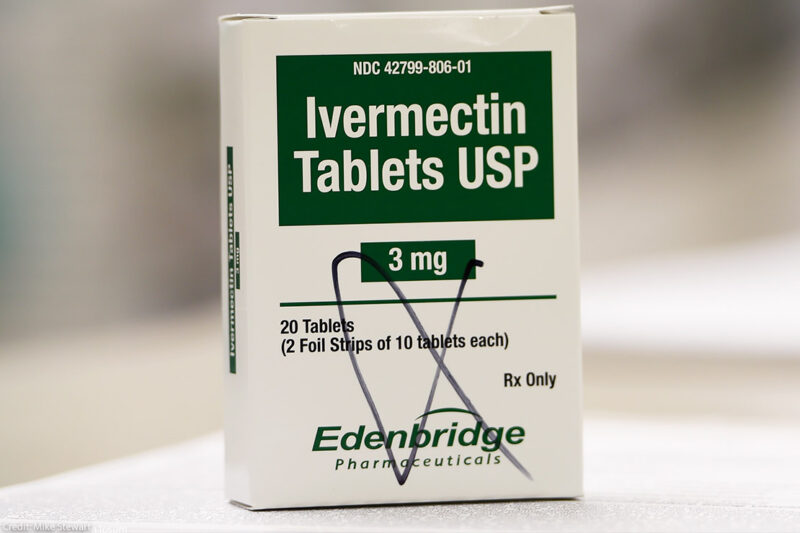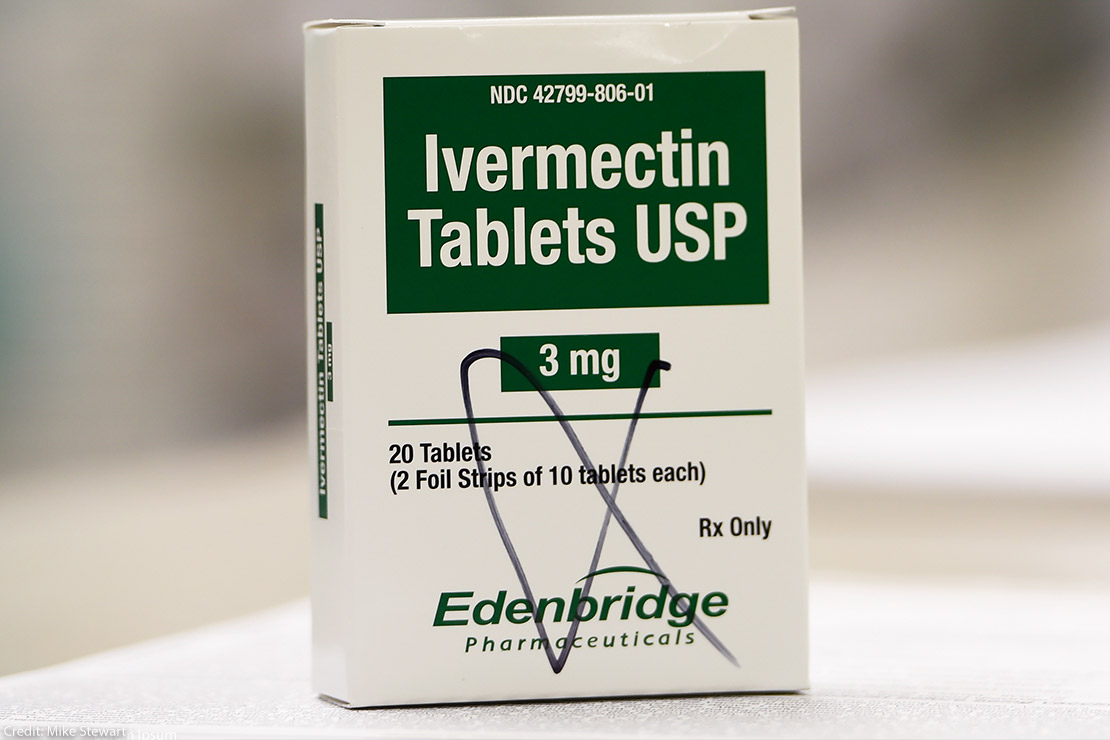Ivermectin “Treatment” in Arkansas Jail Illustrates Systemic Abuse


Last month, people detained in a Fayetteville, Arkansas jail became the unwitting subjects of an unsafe experiment — like before them. In late August, a county official during a budget meeting that a doctor employed at the Washington County Detention Center had been treating COVID-19-positive incarcerated people with ivermectin. The anti-parasitic drug has garnered increased media attention in the last few weeks as poison control centers across the country field an from people who have misguidedly attempted to treat or prevent COVID-19 with the drug.
The that ivermectin has not been shown to be safe or effective for treatment or prevention of COVID-19, and that the misuse of ivermectin can cause serious harm, including seizures, comas, and even death. As COVID-19 ravages communities in Arkansas, the ACLU is fighting for the detained people who were given non-FDA approved drugs without their informed consent or patient education.
Sadly, the jail’s actions fit into a larger pattern seen across the country during the pandemic. Incarcerated people are not receiving proper medical education or care to protect them from the virus, nor to treat them once infected. Providing unapproved and even toxic “treatment” to incarcerated people without their knowledge or education is not only inhumane and dangerous; it’s also a recipe to create even more mistrust of staff among people in jail.
Following the revelation in Fayetteville, several incarcerated people at the jail contacted the ACLU of Arkansas to report that they were unaware that they had been given ivermectin to treat COVID. They also reported that they have been and are still experiencing adverse side effects from the medication.
Marlana Floreal-Wooten learned that her husband Edrick was one of those COVID-positive patients misled by medical staff at the detention center. Edrick and Marlana report that he was told he was being treated with vitamins and steroids — not a dewormer more commonly used for livestock. When ingested by humans in high doses, ivermectin can cause a number of side effects, including skin rash, nausea, vomiting, diarrhea, stomach pain, facial or limb swelling, and adverse neurologic events. Once it was publicly revealed that he and others at the jail were given ivermectin without their knowledge, Edrick and 20 other people in his housing unit refused to take the pills again.

The ACLU of Arkansas obtained records from Washington County Sheriff Tim Helder’s office, and from Karas Correctional Medical, which is contracted by the jail to provide medical care. As part of our investigation into this incident, we are reviewing the documents connected to COVID-19 precautions and treatment for people in the jail’s custody.
Since the beginning of the pandemic, the ACLU has consistently advocated for reducing the number of people in prisons, jails, and immigration detention centers across the country to prevent the spread of the virus. Yet as the Delta variant surges throughout Arkansas and the rest of the country, Washington County government officials are instead using federal COVID-19 recovery funds to expand the jail and lock up more people.
The pandemic has claimed the lives of more than 7,100 Arkansans, and at least 52 of those people were incarcerated. Yet in the past few weeks, Sheriff Helder sought and obtained approval from county officials to use $250,000 of the state’s federal recovery funds to obtain engineering reports that are required as the first step toward expanding the jail.
As the pandemic stretches on, the Washington County jail continues to detain more than 200 people for merely failing to appear in court during a pandemic. Courts continue to set impossibly high bonds for minor technical offenses, in spite of ample evidence that higher jail populations lead to the spread of COVID-19 throughout communities. Many people are needlessly incarcerated, subject to the risk of infection by COVID-19 — and to dangerous “treatment” for infection.
The ACLU of Arkansas is once again asking jails and prisons throughout the state to safely release as many people as they can. The detention center’s failure to use safe, appropriate, and available treatments for COVID-19, along with county officials’ plan to use relief money to expand the jail rather than reduce its population or provide appropriate medical care is absurd and incongruous. Washington County’s mistreatment of the people in its custody illustrates the larger systemic problem in jails throughout the country of mistreating incarcerated people, and needlessly locking up more people who pose no threat to public safety — even in the midst of a pandemic.

